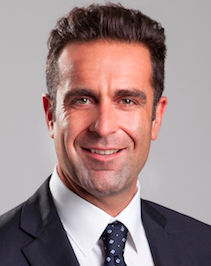Back to the Future: The IoT, the space race and trust in the power of imagination

Over the past few years, the future has changed radically. Future? Changed? Does it not always change, with every breath we make and with every stroke of a butterfly wing? Yes and no, says Alexander Bufalino, SVP International Sales & Marketing at KORE wireless.
What I mean is not the actual future, understood as a series of snapshots of our lives that have to be made. But, more especially, as the interpretation of these potential and hypothetic recordings.
Let’s make it concrete. In 2011, Bruce Gibney wrote the Founders Fund’s controversial statement of ideology, “What Happened to the Future?” In short, Gibney criticised the growing minority, the cynicism, and the fear of Venture Capital companies.
They are no longer able to support fundamental innovations, he stated. This leads, according to Gibney, to the fact that on the one hand there are no exorbitant successes in the VC market anymore and on the other hand the innovation curve flattened: “We believe the shift away from backing transformational technologies and more cynical, incrementalist investments broke venture capital”. A great thesis, which was taken up and discussed on a wider front.
Gibney was assisted by testimonials like the astronaut Buzz Aldrin, who was quoted the following year on the cover of the MIT Technology Review with the words “You Promised Me Mars Colonies, Instead I Got Facebook“. The Review’s editor-in-chief Jason Pontin wrote a major contribution titled “Why We Can’t Solve Big Problems”.
At the same time, the Internet of Things (IoT) was maturing in silence. The term was first used on the threshold of the new millennium, ironically by the MIT scientist Neil Gershenfeld in his book “When Things Start to Think“. According to the Cisco Internet Business Solutions Group (IBSG), the Internet of Things was born between 2008 and 2009 – that was the time when more things were connected to the Internet than people.
With the advent of IoT, the view on the Internet changed. While in 2011, 2012 is still marked by a great skepticism, as the contributions of Gibney and Pontin show, this view has shifted fundamentally in recent years. We have seen that the internet can bring us infinitely more than Facebook.
We see today that even the Mars colonies are back on the agenda. The space economy is experiencing an incredible recovery, which has been unimaginable since the cosmic contest of the Cold War. And we see that the VC industry has also awakened. Alone OneWeb, SpaceX, Blue Origin, Planet and Rocket Lab operate on a venture capital basis of nearly 4 billion dollars.
And, of course, all business models in space have very powerful connections to the Internet of Things. Communication, earth observation, carrier rockets, spacecraft, navigation and even space travel – all of them would not be possible without powerful networks, intelligent and autonomous robotics systems, and 3D printing, without generating, connecting, transmitting, processing and analysing data.
Another irony lies in the question of who are the new space heroes. There are, sorry Buzz, to a preeminent part the inventors of the Web Economy, the Internet billionaires. It is not Facebook instead of Mars colonies. It is first Facebook and then Mars colonies.
So, the future has changed dramatically in less than ten years. The birth of the Internet of Things, the rediscovery of space, the return of the great ideas – suddenly we are back on solving big problems. The imagination is back, the courage is back and the MIT is publishing its own science fiction series “The Twelve Tomorrows” since 2013. Things are getting intertwined, and we are experiencing the acceleration of acceleration.
Maybe the future just set a spell? Has it consolidated and maintained until all its components were on the same level? Who knows so well? But if the development of the last few years, and especially the birth of the IoT, teaches us that we should never give up faith in the future and the great ideas. Or, as Bertrand Russell once said, “The world is full of magical things patiently waiting for our wits to grow sharper.”
The author is Alexander Bufalino, SVP International Sales & Marketing, KORE wireless
Comment on this article below or via Twitter @IoTGN

